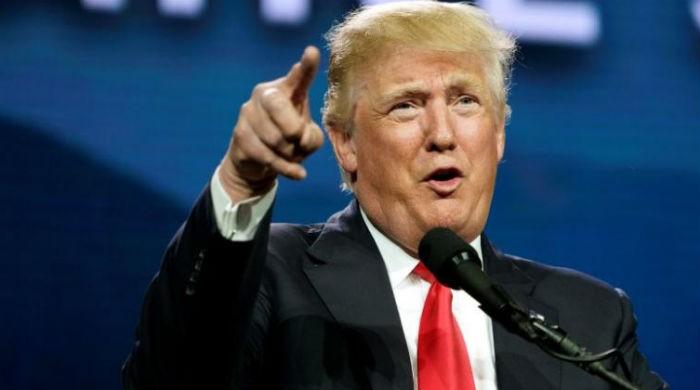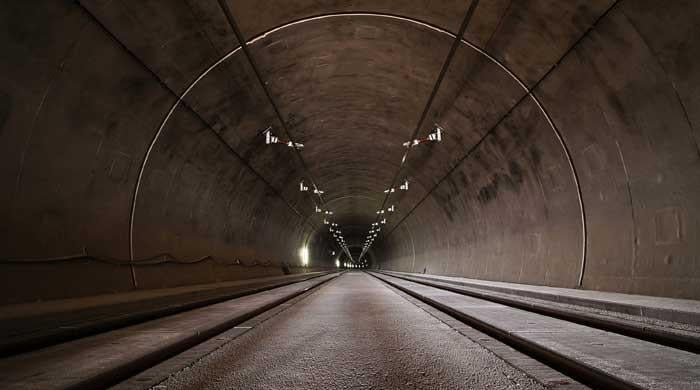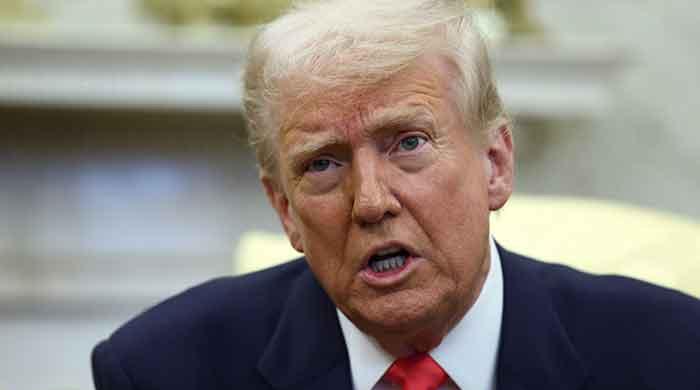After Muslims, Florida's foreigners live in fear in the era of Trump
Many foreigners in Florida -- living in the country legally or illegally -- are in a state of fear and confusion
February 11, 2017

MIAMI: When Venezuelan journalist Eulimar Nunez saw the airport chaos triggered by President Donald Trump´s now-suspended executive order on immigration, she decided to try to upgrade her status from permanent resident to US citizen.
Like her, many foreigners in Florida -- living in the country legally or illegally -- are in a state of fear and confusion.
"It is not that I think he is going to go after Venezuelans. But everything is so unstable and all the rules are changing so fast that I am terrified," said Nunez, 34, who has lived in Miami as a legal resident since 2010.
She remembers the pandemonium that broke out in many US airports when Trump on January 27 abruptly signed an order barring nationals from seven mainly Muslim countries for 90 days, all refugees for 120 and Syrian refugees indefinitely.
Some of those arriving from the seven Muslim countries, including Iraq, Iran and Syria, were detained and sent back on the next flight. People with valid US visas who happened to be abroad, such as students or researchers, were unable to return to America.
A judge in Seattle suspended the order, and on Thursday night a three-judge panel in San Francisco declined to reinstate it. The case will now likely go to the Supreme Court.
"I am shocked by the lack of communication with which these decisions were made, and the sloppy way in which they were carried out," said Nunez. "So I am very afraid of depending on the discretion of US agents."
Upgrades
That fear is cited by many foreigners who, like Nunez, are rushing to upgrade their legal status in the United States: from work visa to permanent resident -- the so-called green card holders -- or from the latter to US citizen.
"Since Trump won it has been sheer madness," said Lorraine Perez, an immigration lawyer in Miami. "But the fears are not unfounded."
Attorneys like her say they have obtained a draft executive order that would make it harder to get work visas -- for example for business executives or people looking to come to America to invest -- by requiring a higher level of education.
Perez said it is not known when Trump will sign this order.
She said that under the draft, in order to get a work visa people will now need an advanced university degree. It will also become harder for foreigners living in America legally to bring family members over with them.
So people seeking one of these kinds of visas are rushing to get the paperwork done before Trump signs the order.
"I have been a lawyer for 20 years and I have never seen anything like this," said immigration attorney Ada Pozo, whose firm has offices in Miami, Atlanta and New York.
Pozo said that in all three cities, her work volume has increased five-fold. "People are really scared, and justifiably so," said Pozo.
The Migration Policy Institute says Florida is home to 650,000 immigrants who do not have legal residency papers. A study by the Pew Research Institute says Miami has the fifth largest undocumented alien population in America, at 450,000 people.
Fear and rumors
United States Citizenship and Immigration Services and the American Immigration Lawyers Association told AFP they did not have recent figures that would give an idea of the increase in visa applications since Trump won the presidential election in November.
But even if the evidence is anecdotal, the fear in the air is palpable.
"My advice to residents who qualify for citizenship is that they file, because rights are being taken away," said Pozo, who is also a spokeswoman for AILA in Florida.
People living in Florida illegally have the most jitters.
They got even worse when Miami Mayor Carlos Gimenez decided January 26 to bow to a defunding threat from Trump and removed Miami from the list of so-called sanctuary cities, in which local authorities do not cooperate with federal immigration officials seeking to arrest or deport people without papers.
Last week, a tweet spread like wildfire: it said immigration authorities had set up several checkpoints in Miami. Journalists fanned out to report on detentions, but in the end there were none.
"It was fake news," said Nestor Yglesias, a spokesman for US Immigration and Customs Enforcement in Miami. "There were never any checkpoints."
For the past week Yglesias has been shooting down rumors of checkpoints and immigration raids in Miami Beach.
Francisco Portillo, director of an NGO called Francisco Morazan Honduran Organization, said "none of this happened. But our people are now in a state of panic, uncertainty and fear."
"There are mothers who do not want to leave their children in school because they are afraid they will be taken away," said Portillo. "Some people do not want to go to work. Those who were forced to drive without a license are no longer driving."











